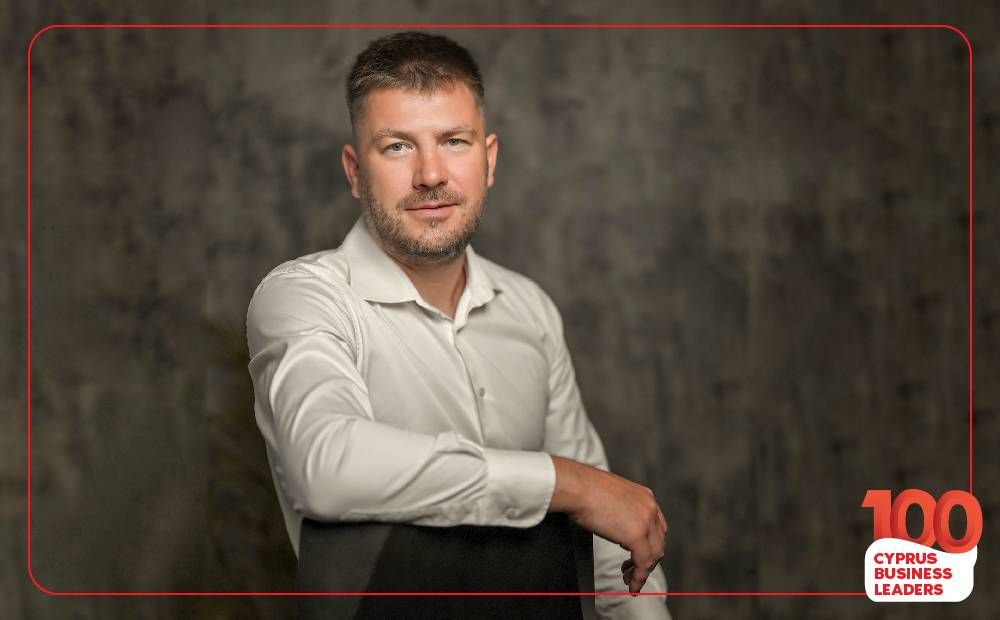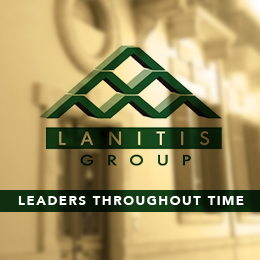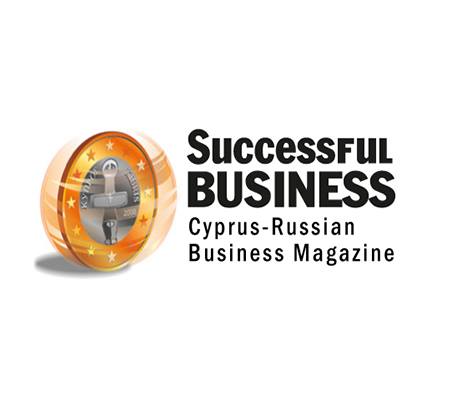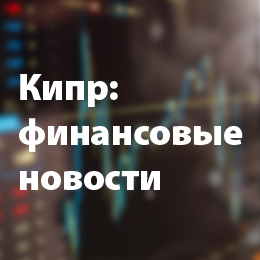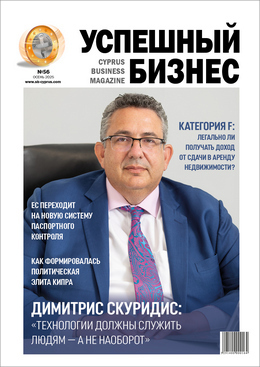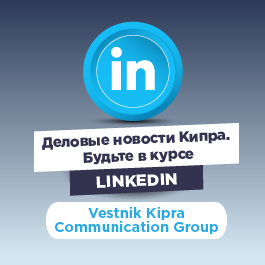Andrei Yarantsau is the co-founder and managing partner of the investment company Steam Power and the game development studio Pump Games. He previously led the mobile game studio Melsoft and was one of the key figures behind Wargaming’s publishing during the meteoric rise of World of Tanks. Today, his interests span beyond the gaming industry, reaching into promising technological frontiers such as biophysics and neuroscience. His leadership is grounded in curiosity, deep respect for expert minds, and a partnership-based approach to decision-making – not in isolation but through dialogue.
Can you recall the moment when you realised you were not just a manager, but a leader? What gave you that inner certainty?
There were two such moments. The first came during my university years. I was studying physics and quickly realised that many students around me were much smarter – they understood certain subjects far more deeply than I did. That’s when it became clear to me: serious problems are better solved in a team than alone. A bit later, it turned out that the most talented people are often not naturally intended to work in teams. And that’s where a leader comes in – someone who can connect such individuals and build an environment where each person can perform at their best.
The second moment came later in my career, when I started building teams and reflecting on leadership as a form of careful orchestration. How do you bring highly intelligent people together and teach them to truly listen to one another? At some point, I realised that this was my strength – being the one who enables others to work together, who solves communication and resource challenges. That became the core of my leadership style.
Are doubts acceptable at the top level of leadership? When is reflection helpful, and when can it get in the way?
Doubt is natural – the key is knowing when and where it belongs. Within a small leadership team – absolutely. Discussing options with partners, crash-testing ideas, challenging assumptions – that’s all vital. But show no doubts in external communications, especially in uncertain times, what people expect from a leader is confidence. You can’t allow doubts to spread across the team.
My approach to this matter is simple – in any problem, there should be at least one partner with whom everything can be discussed with complete honesty. A model of interaction where two people constructively debate allows to identify cognitive biases and perception traps, making the final decision more accurate. Of course, it doesn’t have to be just one person – it can be several experts on the matter. But ultimately, the final decision is always the responsibility of the leader before presenting it to the team.
In a fast-moving environment with distributed teams, what do you think builds genuine trust within an organisation?
For me, it’s a combination of shared values and mutual respect. You don’t need perfect alignment in values – but you do need respect. Without that, trust simply doesn’t take root.
I often say: it’s fine to question a partner's statements, even to double-check each other. But you must show respect both in words and in actions. Respect for perspectives, experience, boundaries. That’s the foundation. Then trust builds gradually, step by step – through what you say, how you behave, what others say about you when you’re not in the room. And of course, how a team weathers various crises – that’s the ultimate test and the glue that holds things together.
What signs in a person’s behaviour or mindset help you recognise someone as a “team fit”?
For me, one of the key indicators is the level of energy. Not just charisma, but inner drive – someone who brings momentum to the team, who helps move things forward rather than holding them back. If you constantly have to pull someone along, motivate them, explain the obvious things – it means something is out of balance here, no matter how strong they are as experts.
Another crucial factor is maturity – emotional and personal. The ability to self-recover, to take responsibility, to get back up without needing someone to piece you together each time. That in the long-run matters more than experience. Some people tend to be stuck in the past unless pushed from the outside. In business, that’s a luxury no one can afford – we need people who can not only manage themselves but support others too.
Your industry demands high speed and deep involvement. What helps you stay grounded and not lose sight of meaning amidst the routine?
I don’t follow strict discipline in the traditional sense. I’m more of an experimenter – I like understanding how things work on my own. Early in my career, I was deeply driven by the thoughts about my family's future. I wanted to build a system that would keep working even if I were no longer around. That was a powerful motivation.
Now that the foundations are in place, I have more freedom to choose projects and people based not just on results, but on genuine interest. Curiosity drives me – the chance to delve into complex subjects, explore the unknown, revise big ideas that once inspired me. That’s where I find my focus: when I’m fully engaged not only intellectually, but emotionally too.
Has your intuition ever pointed you in the opposite direction of data or logic? How do you make decisions when rational arguments and gut instinct don’t align?
When it comes to people – I trust my intuition. I’ve developed a good sense for founders and partners, for how someone thinks and interacts. I listen to my gut feelings, and it fairly rarely fails.
But with business models, products, or strategic choices – I take the opposite approach. Emotions can mislead, especially when risks are high or big investments are involved. I always cross-check with data, talk to people who’ve walked that path before, and only then decide. Intuition is a great tool – but it shouldn’t work alone. It needs to be paired with facts and clear reasoning. Nevertheless, mistakes do happen from time to time.
Leaving aside KPIs and external success markers – how do you personally define the feeling of success?
For me, it’s all about looking back. When you realise the decisions you made a few years ago actually worked out. Not because everything was perfect – but because you chose the right direction, built the right team, took the risks and were patient.
Sometimes a project ends, and there’s no celebration – you just let go and move on. But later, you catch yourself thinking: yes, that was the right call. And that quiet certainty – that it was hard, but your meaningful efforts led to something worthwhile – that’s my true measure of success.
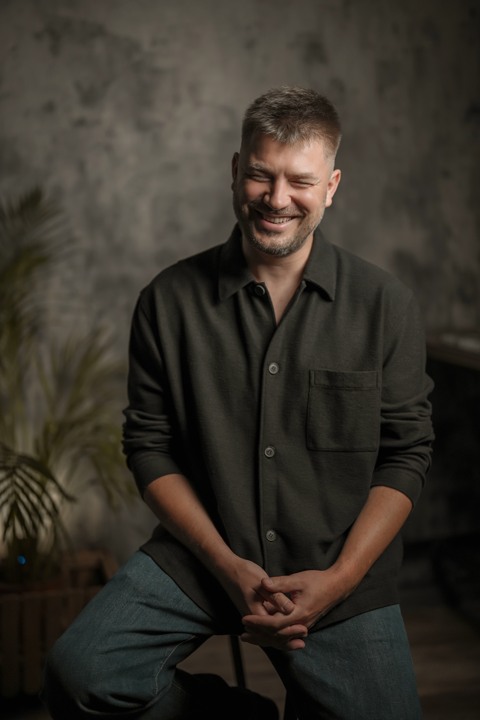 How do you make decisions when there’s no guaranteed outcome – when the risk is real, but so is the potential for transformation?
How do you make decisions when there’s no guaranteed outcome – when the risk is real, but so is the potential for transformation?
I try not to rush. I usually give myself one-two days, but not more than a week – just to sit with the idea. When I wake up with a clear vision of how to do it and energy to get things done, then I know it’s the right move. If not, I hold off – maybe the time isn’t right yet.
Of course, sometimes a wave of certainty hits: “This needs to happen.” In those moments, it’s vital to go to someone who can offer a reality check. I rely on partner dialogue to strike the balance between instinct and analysis. Talking through an idea with someone who can dissect it from every angle makes for stronger decisions.
Have you gone through phases of internal rethinking – moments when you felt the need to change direction or step away from an old mindset or way of working? What triggered it?
That kind of rethinking happens all the time. Sometimes failure brings it on – when you’ve invested time and money, followed a certain path, and the results don’t come. That’s when you pause and ask: what went wrong, and what needs to change?
But equally often, success is the trigger. When everything’s going great, you start wondering – what next?
At the peak of any project, new challenges always arise – competitors' attacks, regulatory pressure, internal politics. It’s normal. And that’s when it becomes crucial to sit down and rethink your direction and values. To understand where you’re headed and why. I used to look for answers in conversations with experienced businessmen. Now, AI has become another tool – sometimes I’ll just pour out my thoughts into a chat, and a surprising new angle can spark and add some clarity. The main thing is to catch a fresh idea that anchors you – and rebuild the system around it.
What helps you recharge outside of your professional life – what keeps you energised and interested?
Very early in life, I recognized that laziness, when channelled properly, can be a source of unexpected strength. When I face a difficult task, I let myself kind of slow down – until I reach a point where I can’t sit still anymore and just have to act.
The second method is to shift your focus for a while. Sometimes all it takes is washing the car or doing the dishes – the physical movement clears the mental clutter and brings you back with a fresh mind.
I also make time for exercise – swimming, hiking. Anything that activates the body resets the mind.
If you could bring back one quality from your younger self – whether it’s lightness, risk-taking, or naivety – what would it be and why?
Probably the ability to fully focus. I used to be able to read for hours and even days without distraction – just because I was curious. That kind of deepness is much harder now, with all the notifications, parallel tasks, and background worries. There’s always a sense that something might be going wrong somewhere, and you need to be on alert.
If I could regain that depth – the ability to dive into a single subject without scattering my attention – it would be a huge advantage. In today’s noisy world, deep concentration is becoming a luxury. And at the same time, it’s a necessity – if you want to do more than just react, if you want to truly create.
What idea or principle from your life today would you want to carry forward ten years from now – no matter what changes may come?
I really hope to hold on to my curiosity – the drive to understand new things. It’s what keeps me going and gives meaning to my work – not just earning but learning and experimenting. Right now, for example, I’m diving into projects in neurophysiology and biophysics – going back to ideas that once inspired me as a student.
Another principle I want to keep is the value of real human connection. The world is getting more digital by the day, but true meaning is born in dialogue – listening to hear and being heard. I hope that ten years from now, I’ll still be surrounded by people with whom I can both build successful ventures and have thoughtful discussions about topics that matter.
Interview by Kateryna Bila
#SB100Leaders
You may also want to read:
Secrets of establishing a successful mobile gaming business
Myths and reality in the gaming industry
